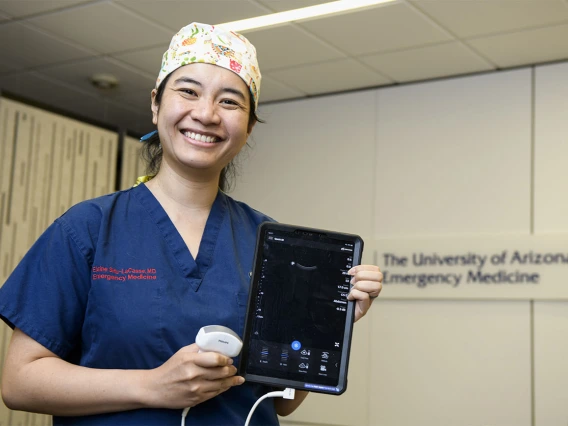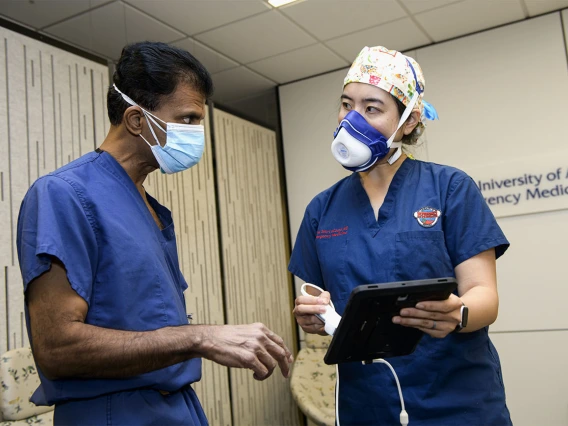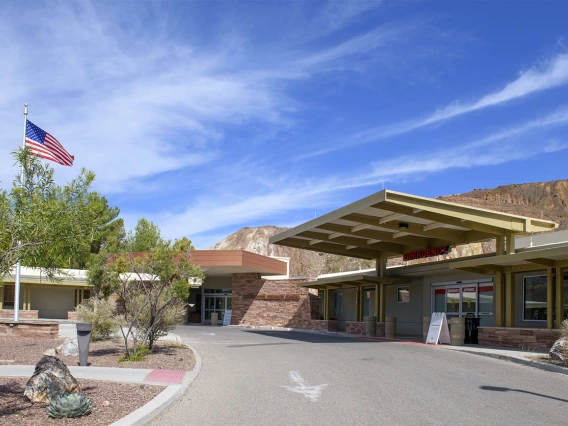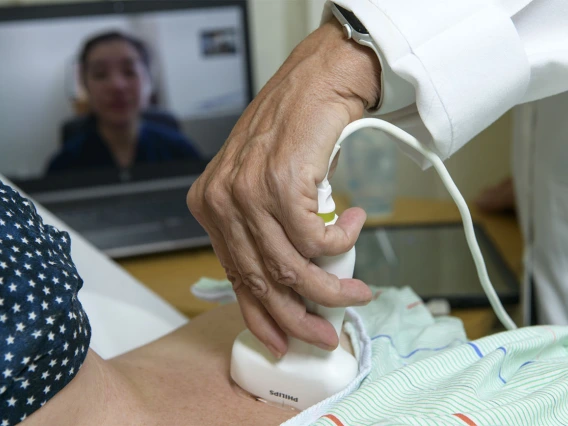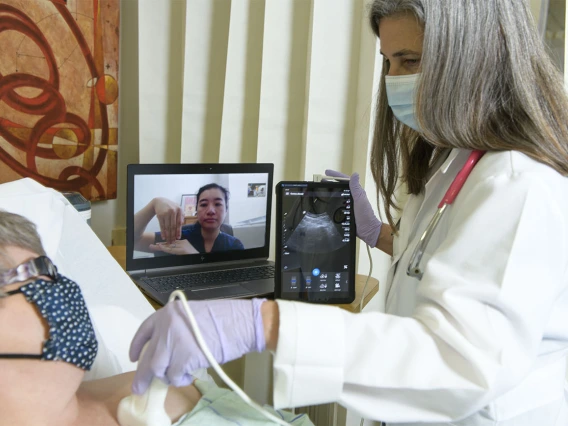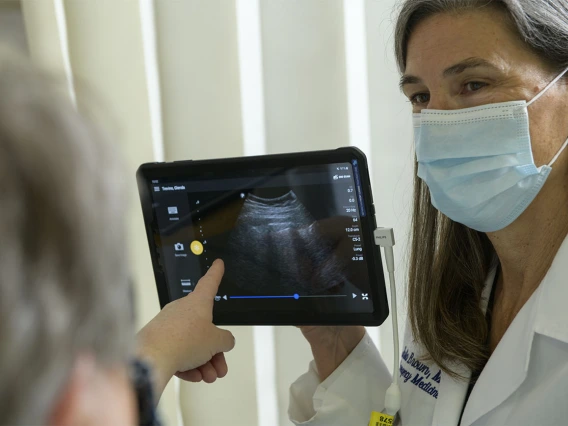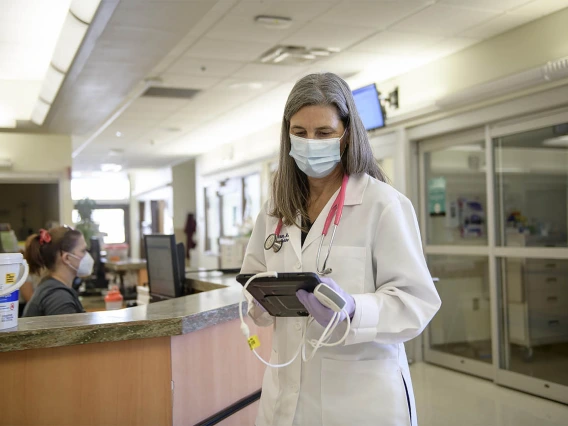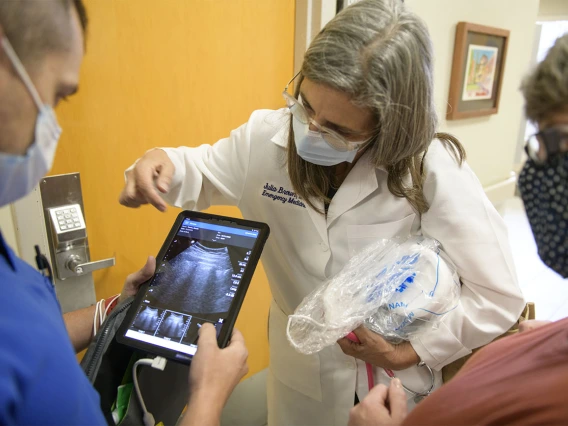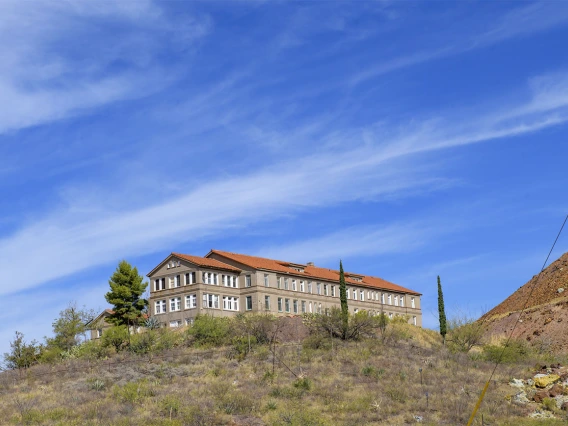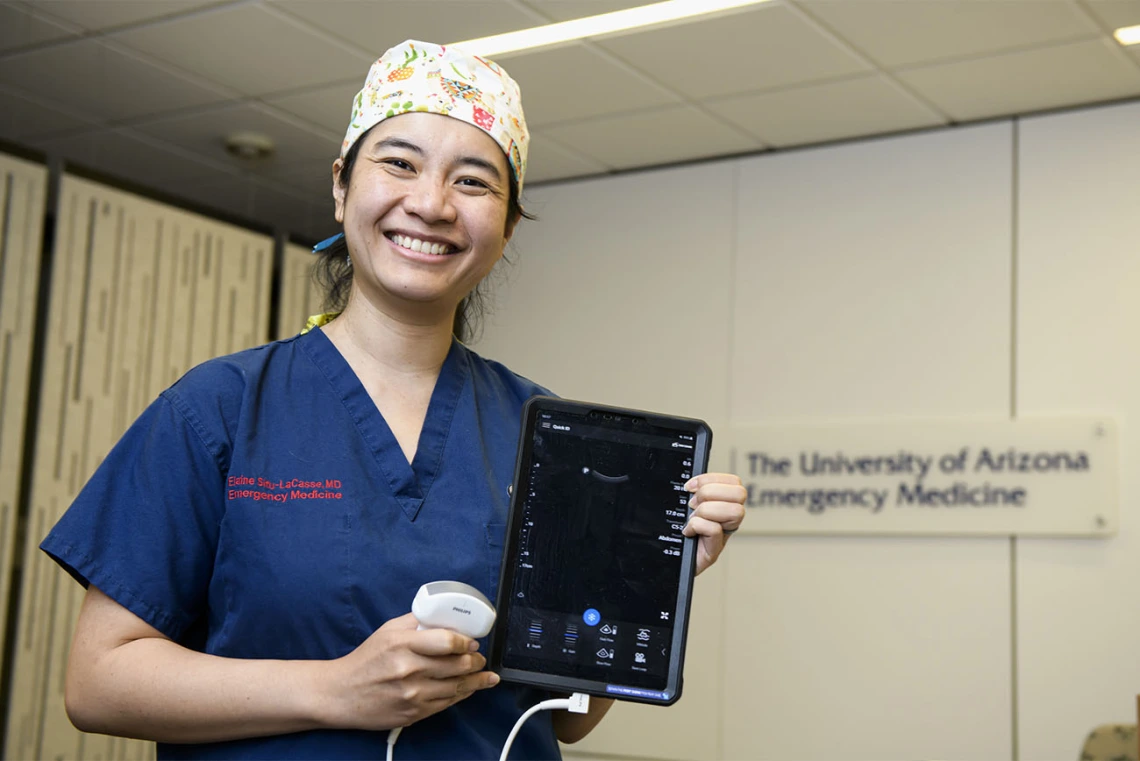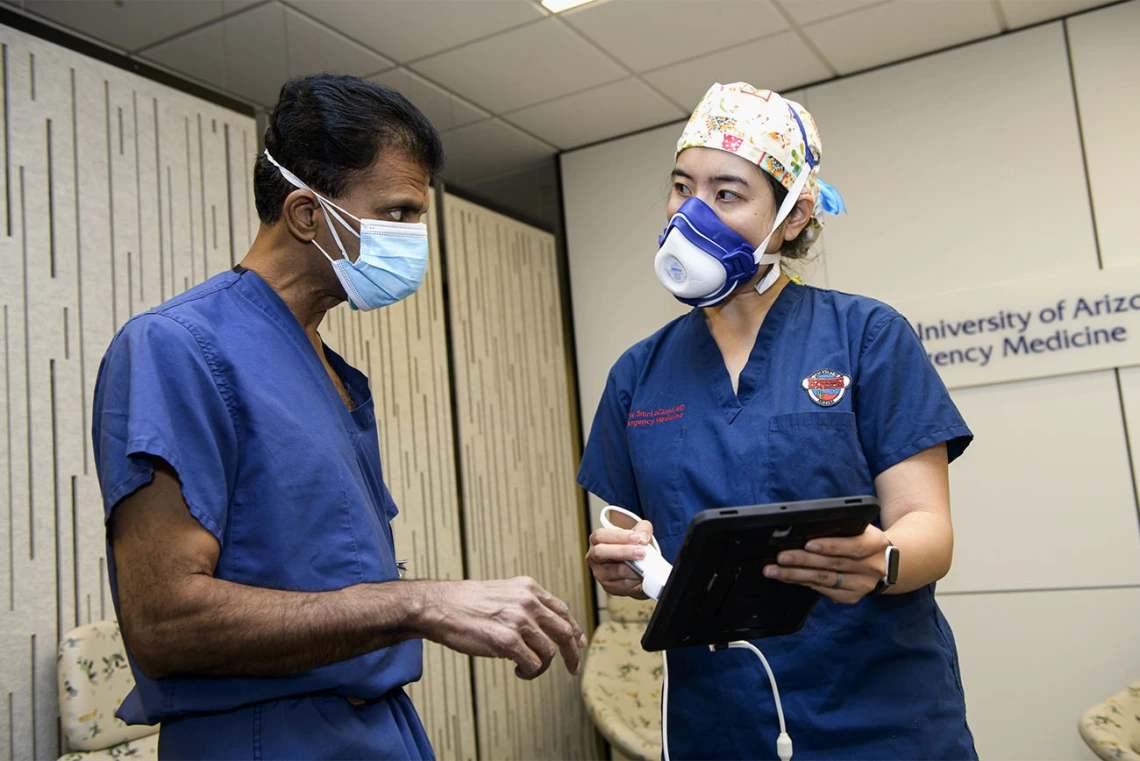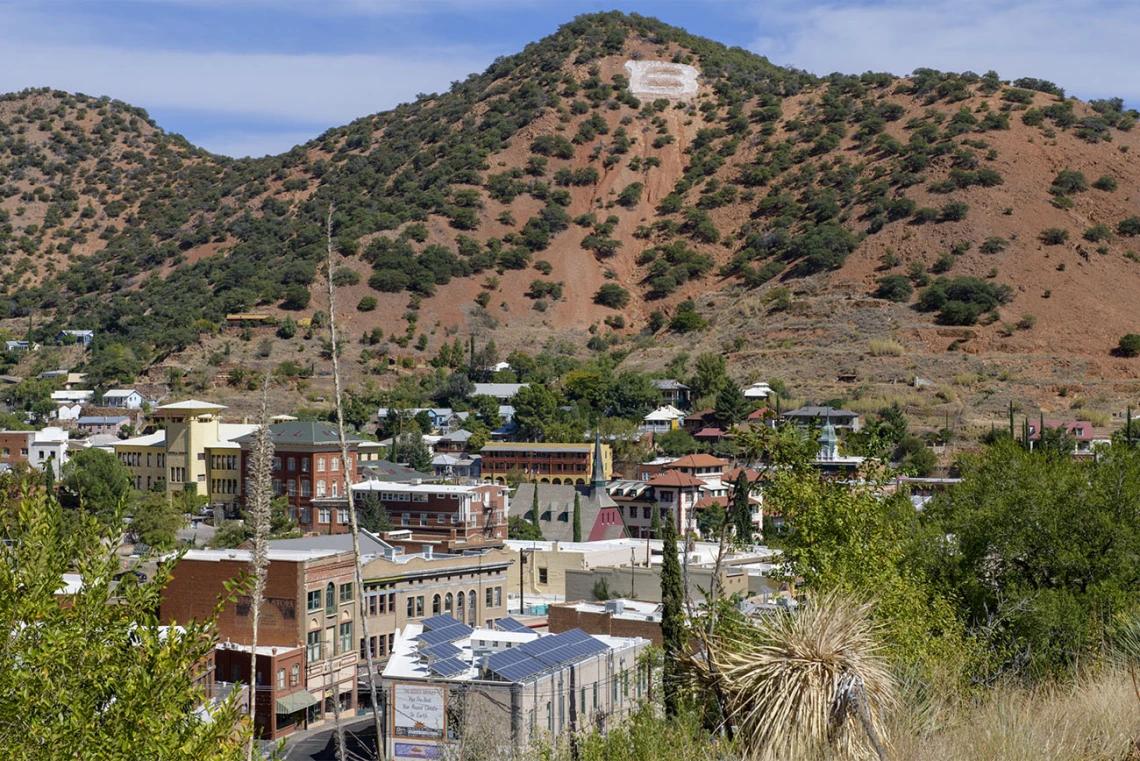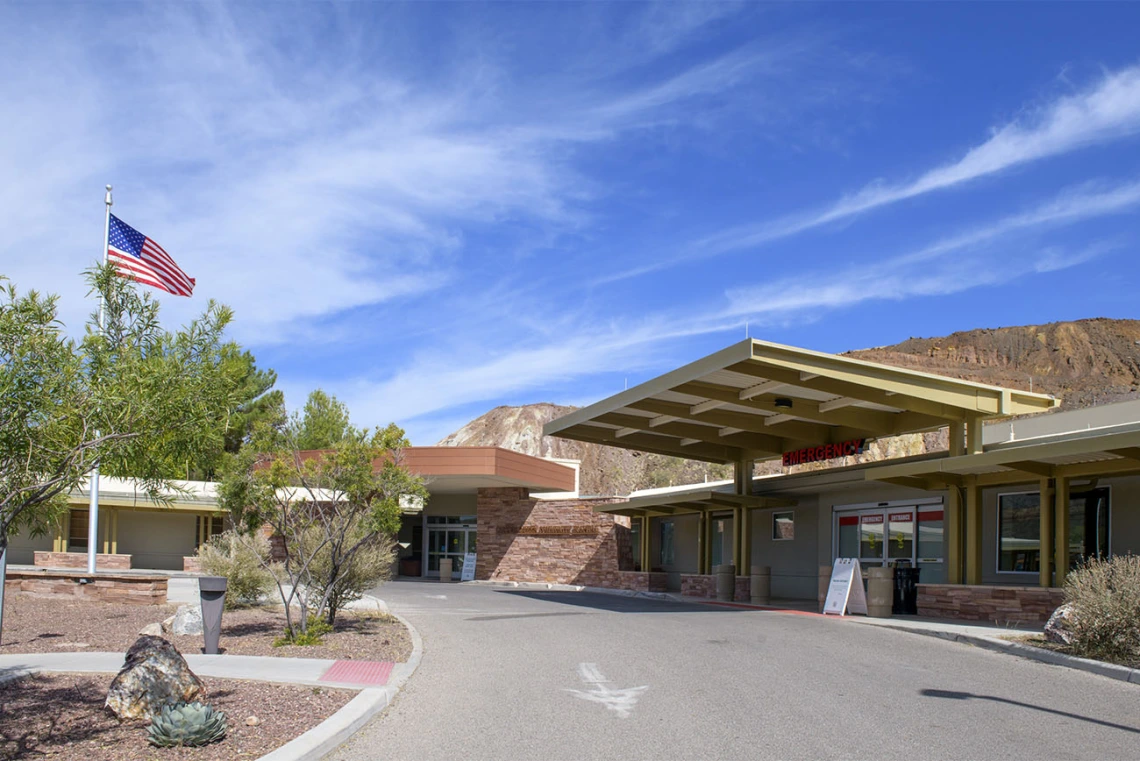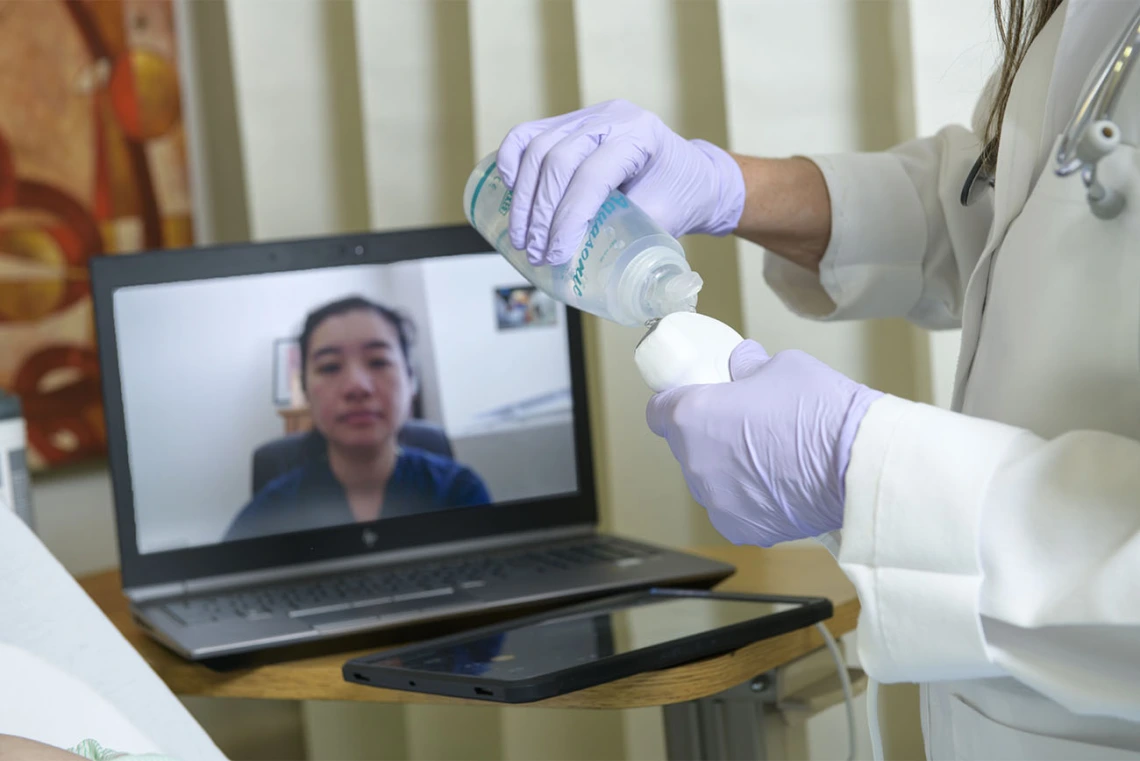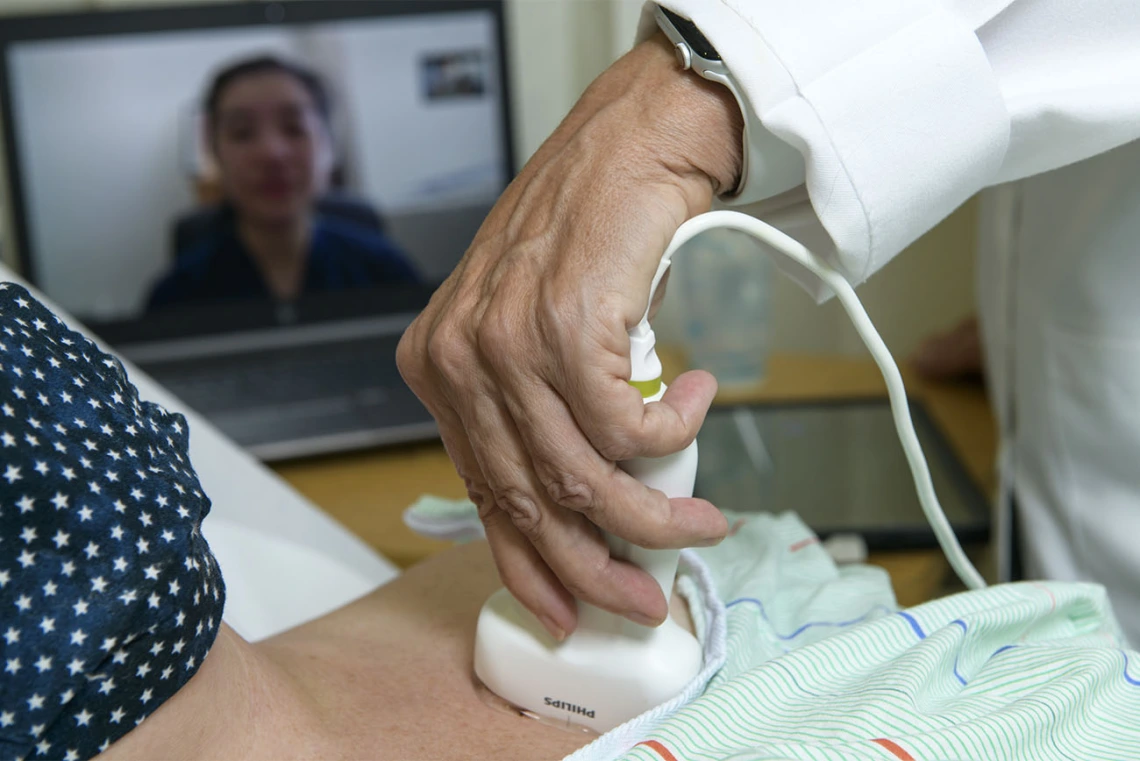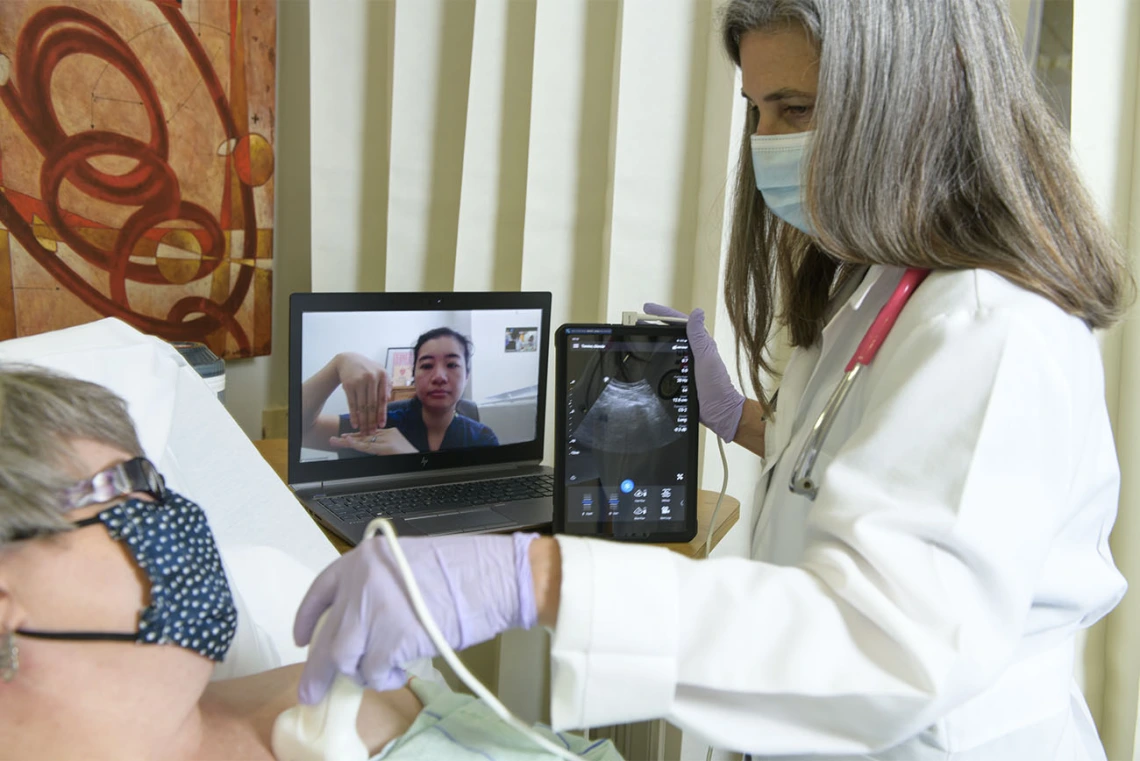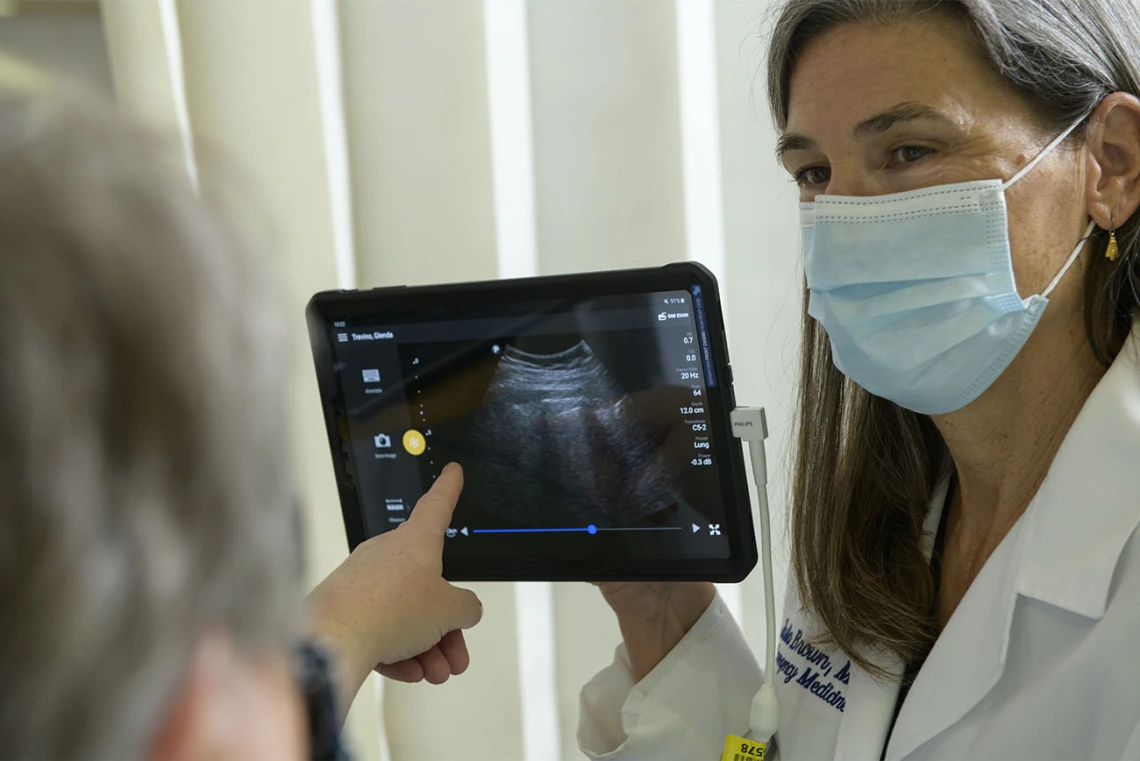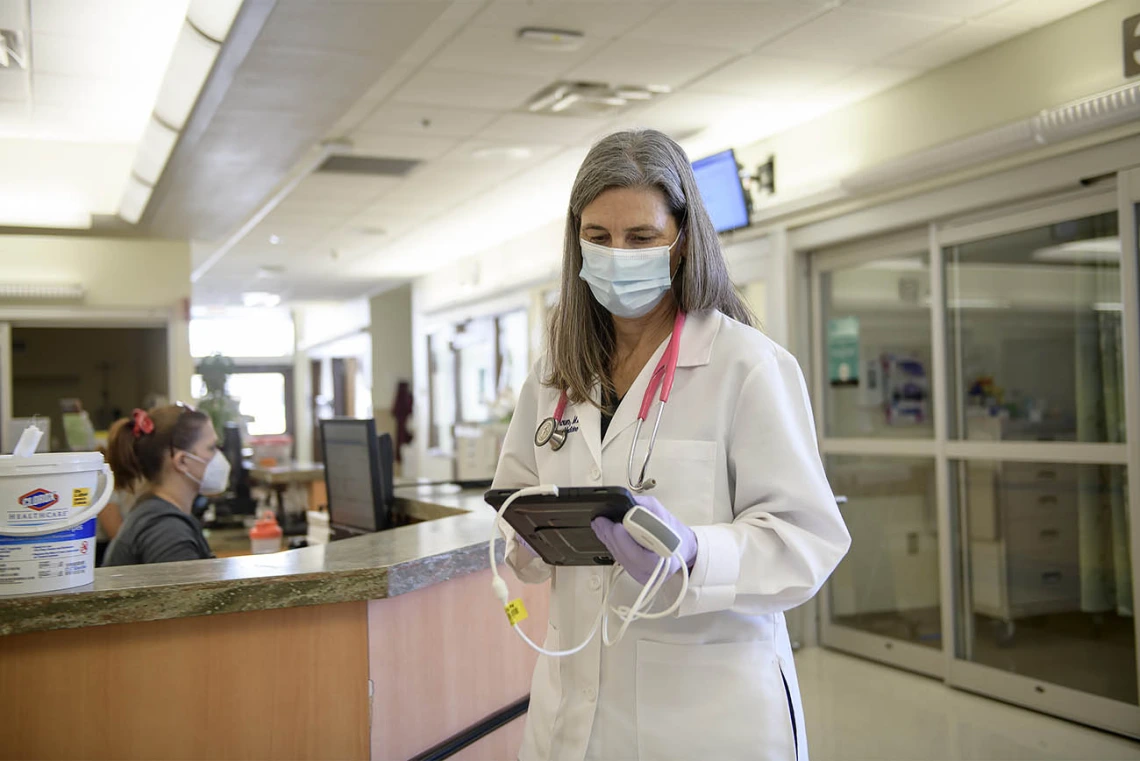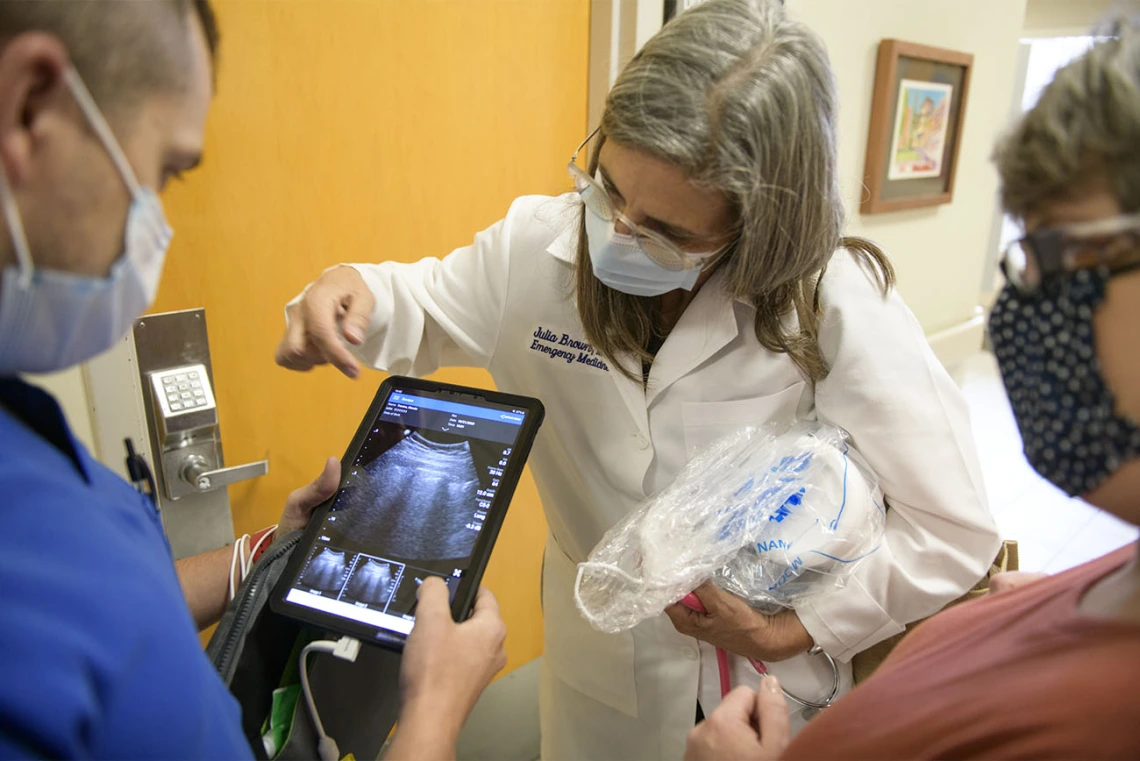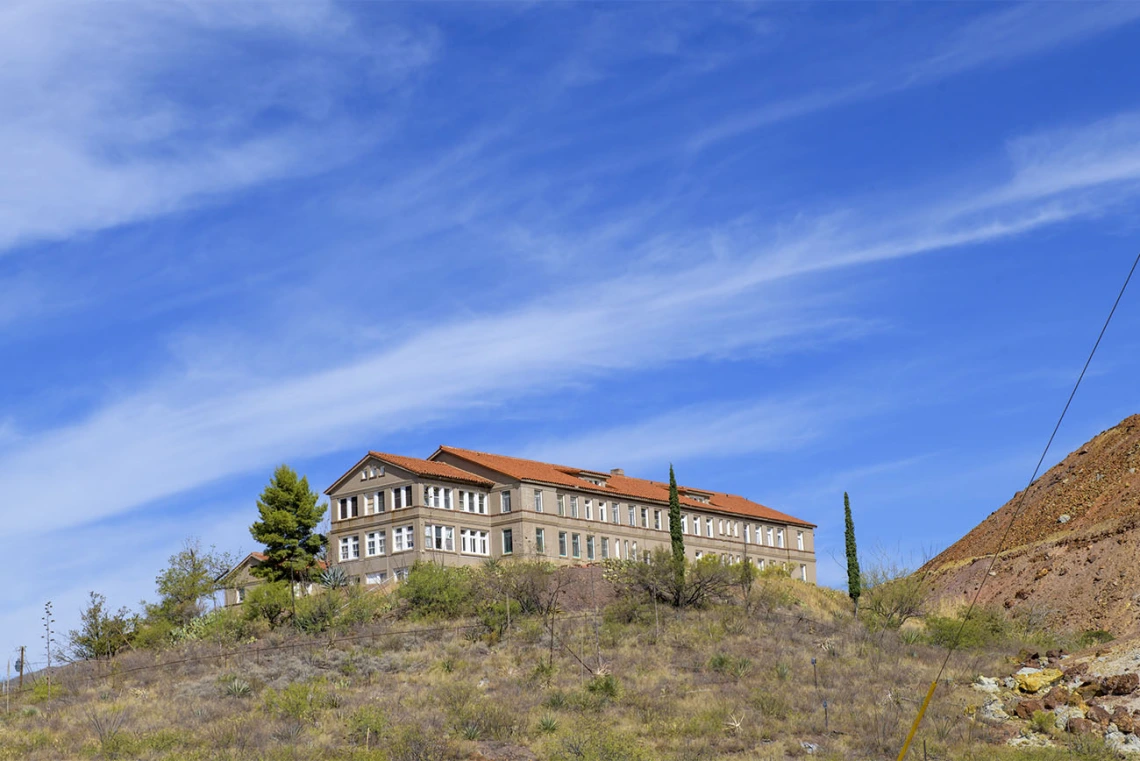Equipping Rural Health Care Providers to Diagnose COVID-19
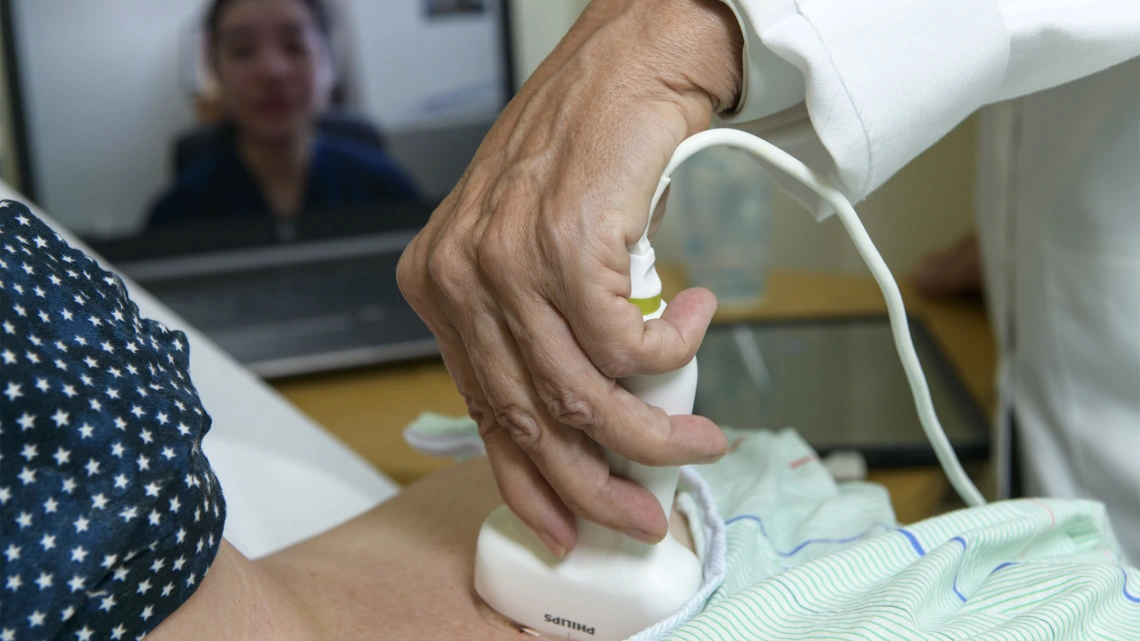
A physician in Bisbee, Arizona, performs an ultrasound while a doctor in Tucson observes remotely via a livestream.
A lung ultrasound education program developed by the University of Arizona Health Sciences will make it easier to diagnose COVID-19 in rural areas, where the pandemic is having a disparate impact and access to CT scan capabilities and COVID-19 testing is often limited.
Elaine Situ-LaCasse, MD, an assistant professor in the Department of Emergency Medicine at the UArizona College of Medicine – Tucson, is leading the effort to develop the ultrasound education program for rural emergency medicine providers, who will be connected remotely to ultrasound experts for education, image review, consultation and quality assurance. Her team’s goal is to create a sustainable, reproducible and scalable tele-ultrasound education program to help rural emergency department physicians feel more comfortable performing lung ultrasounds in the diagnosis and management of suspected or confirmed COVID-19 patients.
In Southern Arizona, Dr. LaCasse is partnering with Copper Queen Community Hospital in Bisbee, along with the hospital’s clinic in Douglas, to train physicians in the technology. The 25-bed hospital recently transformed a boardroom into a space for overflow beds in preparation for the COVID-19 pandemic. So far, that space hasn’t been used for emergencies and instead is the training site for rural health care providers learning how to use bedside lung ultrasound.


